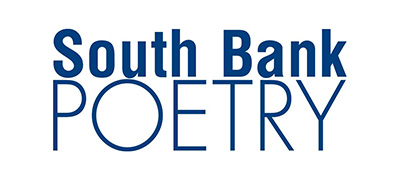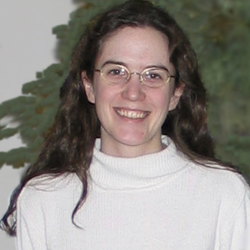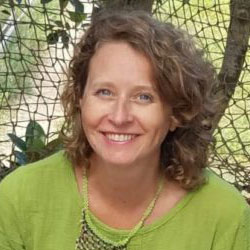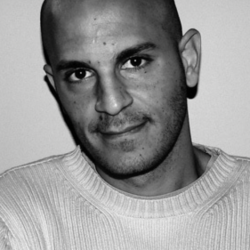Weaver Words Literature Festival
An exciting five day programme, packed full of fascinating events, talks and creative workshops in Frodsham, England.
Mark your calendars: 2005 Griffin-shortlisted poet Michael Symmons Roberts opens the festival with an evening of poetry and readings on Wednesday, September 1!
Fool for Poetry International Chapbook Competition
The competition is open to new, emerging and established poets from any country. One of these winners will be the highest scoring manuscript entered by a poet with no solo collection (full-length or chapbook) previously published. Up to 25 other entrants will be publicly listed as “highly commended”.
Manuscripts can be between 16 and 24 pages in length, in the English language and the sole work of the entrant with no pastiches, translations or versions. The poems can be in verse or prose.
There is an entrance fee of €25 for each manuscript. Entrants may enter more than one manuscript. Once entered, no alterations can be made to the submission. Simultaneous submissions are accepted but please notify us immediately should your manuscript be accepted elsewhere. The winners will be selected by a panel of renowned poets.
The winning chapbooks will be published by Southword Editions and launched at the Cork International Poetry Festival. It will be offered for sale internationally through our own website, Amazon, and in selected independent book shops.
Deadline: August 31st 2021
Found in Translation
Elaine Equi
copyright ©2007
I’ve always liked reading poetry in translation. In fact, I prefer it that way.
Poetry is the sound one language makes when it escapes into another.
Whatever you think you’ve missed is, as the saying goes, better left to the imagination.
It gives even a mediocre poem an ineffable essence.
Greater involvement on the part of the reader leads to greater enjoyment.
A bad translation, a clumsy one, is especially charming.
The poem is whatever cannot be killed by the translator.
Its will to survive, its willingness to be uprooted and flee its homeland is admirable. I almost want to say virile.
An untranslated poem is too attached to its author. It’s too raw.
An untranslatable poem that hordes its meaning, whose borders are too guarded, is better unsaid.
For years, I copied authors from around the world. Then one day it occurred to me, perhaps it’s the translator I imitate, not the poet. This idea pleases me and makes me want to write more.
It would be great to learn French in order to read William Carlos Williams.
Translators are the true transcendentalists.
Notes on the Poem
We begin the week with "Found in Translation," a poem by Elaine Equi from her 2008 shortlisted collection, Ripple Effect: New and Selected Poems (Coffee House Press). Equi’s sophisticated prose explores the multifaceted and deeply fascinating relationship between poetry and translation. “Poetry is the sound one language makes when it escapes into another,” she writes, equating poetry to the very act of translation. Of the collection, the judges said: “The words could stand as an accurate description of Equi’s own highly distinct poems. They too move with a bounce and twist; they have their own insouciant, confident wit, their own beautifully poised way of looking outward at the world in all its quirky variousness, while at the same time retaining an uncompromised inwardness: the registering of a complex, sophisticated poetic self.” Listen to Equi’s Griffin Poetry Prize reading here.
Focusing on Rhyme – poetry writing class
South Bank Poetry Editor Katherine Lockton runs regular Saturday poetry writing classes online. Join South Bank Poetry for their online programme of poetry writing classes, which provide a fun, personal and accessible approach to learning how to write poetry, in a friendly environment that puts the student’s learning experience first.
The class level for this session is beginner friendly. The class examines what rhyme adds to our poems and how can we use it. Should we rhyme? Is it still poetry if it doesn’t rhyme?
UCalgary third annual LGBTQ2S+ lecture with Billy-Ray Belcourt
The University of Calgary is hosting its third annual LGBTQ2S+ lecture with three Indigenous artists and intellectuals, including 2018 Griffin winner, Billy-Ray Belcourt, Joshua Whitehead, and Shawnee Kish.
Register here! Aug 26 at 7pm MT / 9pm ET
What’s new?
Elizabeth Winslow, translated from the Arabic written by Dunya Mikhail
copyright ©2006
I saw a Ghost pass in the mirror.
Someone whispered something in my ear.
I said a word, and left.
Graves were scattered with mandrake seeds.
A bleating sound entered the assembly.
Gardens remained hanging.
Straw was scattered with the words.
No fruit is left.
Someone climbed on the shoulders of another.
Someone descended into the netherworld.
Other things are happening
in secret.
I don’t know what they are—
This is everything.
Notes on the Poem
For the next few months, our Poem of the Week will highlight poetry in translation, featuring excerpts from our shortlisted and winning collections. This week’s poem, “What’s New?,” is excerpted from the 2006 shortlisted collection, The War Works Hard, by Elizabeth Winslow translated from the Arabic written by Dunya Mikhail. Of the collection, the judges, say; “These are political poems without political rhetoric, Arabic poems without Arabic poetical flourishes, an exile’s letter with neither nostalgia nor self-pity, an excavation of the ruins of her homeland where the Sumerian goddess Inana is followed on the next page by the little American devil Lynndie England. In Elizabeth Winslow’s perfect translations, poetry takes on its ancient function of restoring meaning to the language. Here is the war in Iraq in English without a single lie.” Listen to Dunya Mikhael read in this 92Y reading.
Victoria Chang Lecture at Bread Loaf
At 2 PM in the Afternoon (Excerpts)
Sarah Riggs, translated from the French written by Etel Adnan
copyright ©2019
the sun came out at night
to go for a stroll and the divine crossed
the room. the windows
opened
writing comes from a dialogue
with time: it’s made
of a mirror in which thought
is stripped and no longer knows
itself
in Palermo men are as
strictly trained as horses; or
else they have the shining violence of
flowers
*
it’s more bearable to think of
death than of love
Greek thought explored
all things the way it
explored the islands
when men no longer have
power over women, over whom
will they have it?
*
all Sicily is painted
by the planting
of vines
the shards of grief that a teapot
transforms into inexpressible joy
the Barbary figs ripen
on brilliant mornings, with firm flesh,
with certain steps
Notes on the Poem
We begin the week with “2 PM in the Afternoon” from the award-winning collection Time (Nightboat Books) by Sarah Riggs, translated from the French written by Etel Adnan. For the next few months, our Poem of the Week will highlight poetry in translation, featuring excerpts from our shortlisted and winning collections. The Griffin Poetry Prize is one of the very few international prizes that accepts works in translation (under the condition that the work be translated to English), and by featuring poems in translation, we wish to highlight creative affinities between our shortlisted poets, as well as translation as an act of artistic collaboration. “I fell in love with Etel and her work simultaneously, and the exuberance and clarity and engagement you find in her work you find her art and in her person—it’s all one. These poems spoke to me in their brevity, geographical and historical reach, and intensity, and I wanted to hear how they sounded in English,” says Sarah Riggs in a brief interview on translation published on Nightboat’s website. Listen to Sarah Riggs read from the poem "Return from London" in this beautifully illustrated Griffin Poetry Prize video.
Black Horses
Fady Joudah translated from the Arabic written by Ghassan Zaqtan
copyright ©2012
The enemy’s dead think mercilessly of me in their eternal sleep
while ghosts take to the stairs and house corners
the ghosts that I picked off the road and gathered like necklaces
from others’ necks and sins.
Sin goes to the neck… there I raise my ghosts, feed them
and they swim like black horses in my sleep.
With the energy of a dead person the last blues song rises
while I think of jealousy
the door is a slit open and breath enters through the cracks, the river’s
respiration, the drunks
and the woman who wakes to her past in the public garden
and when I fall asleep
I find a horse grazing grass
whenever I fall asleep
a horse comes to graze my dreams.
On my desk in Ramallah there are unfinished letters and photos of
old friends,
a poetry manuscript of a young man from Gaza, a sand hourglass,
and poem beginnings that flap like wings in my head.
I want to memorize you like that song in elementary school
the one I carry whole without errors
with my lisp and tilted head and dissonance
the little feet that stomp the concrete ground with fervor
the open hands that bang on the desks
All died in war, my friends and classmates…
and their little feet, their excited hands, remained
stomping the classroom floors, the dining tables and sidewalks,
The backs and shoulders of pedestrians…
Wherever I go
I hear them
I see them.
Notes on the Poem
For the next few months, our Poem of the Week will highlight poetry in translation, featuring excerpts from our shortlisted and winning collections. Today we are sharing “Black Horses” by Fady Joudah, translated from the Arabic written by Ghassan Zaqtan from the collection Like a Straw Bird It Follows Me (Yale University Press), the 2013 Griffin international winner. Joudah and Zaqtan have a longstanding collaboration. Of his encounter with the collection, Zaqtan writes, “A few years ago, I came across what would eventually make up half of Ghassan Zaqtan's tenth and most recent poetry collection, Like a Straw Bird It Follows Me, in Al-Karmel, the international quarterly literary journal that Mahmoud Darwish edited for more than two decades…. I was so taken by the long poem that I still remember clearly the sense of having encountered one of the finest poems I have read: its private and collective enunciation, versatile diction, adjacency of classical and modern aesthetics, narrative and lyric, its insistence on dispelling dimensions of time and place in search of new language where what is learned is constantly destabilized.” (from Fady Joudah on Ghassan Zaqtan, in Asymptote)




